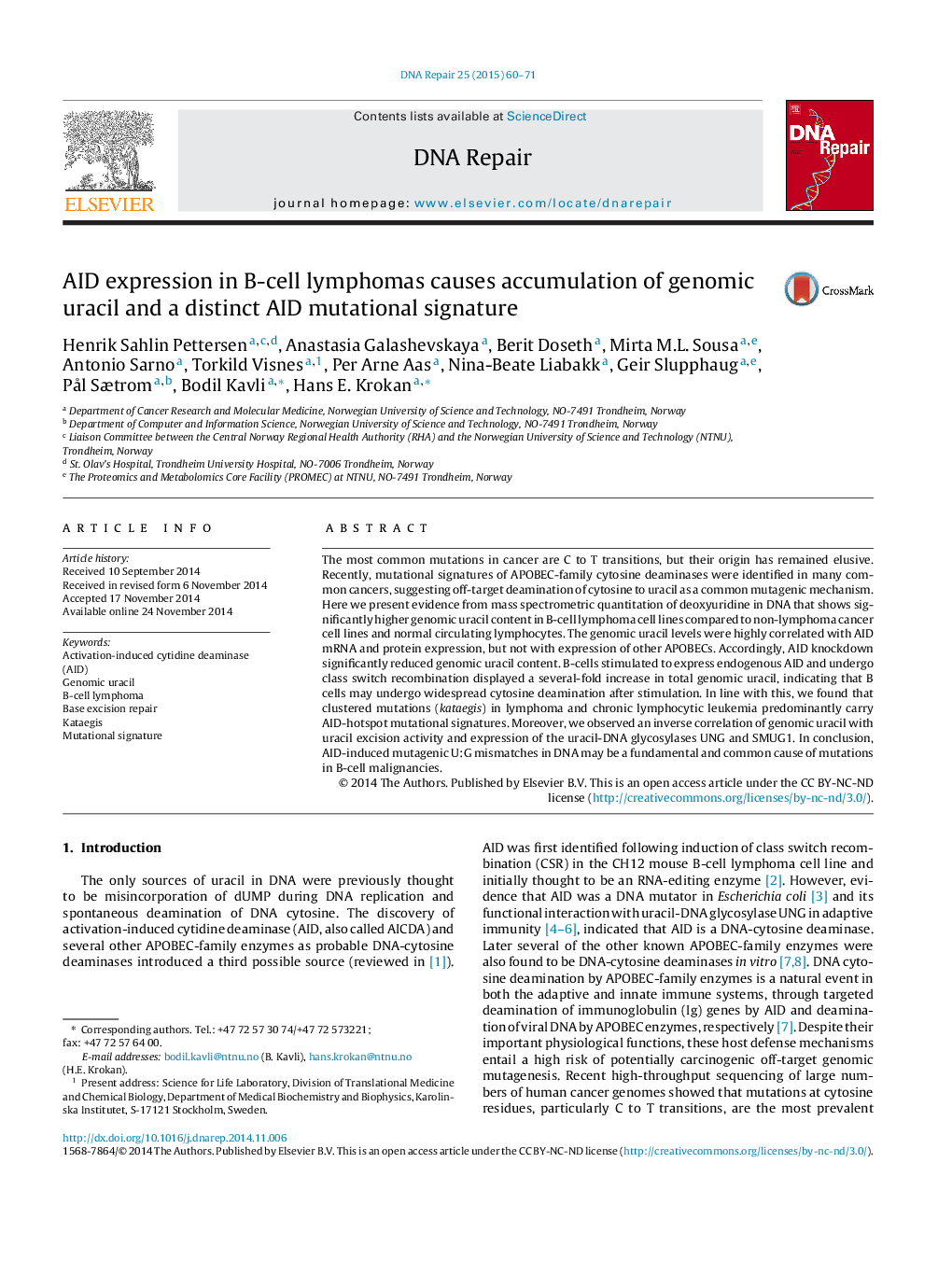| Article ID | Journal | Published Year | Pages | File Type |
|---|---|---|---|---|
| 8320653 | DNA Repair | 2015 | 12 Pages |
Abstract
The most common mutations in cancer are C to T transitions, but their origin has remained elusive. Recently, mutational signatures of APOBEC-family cytosine deaminases were identified in many common cancers, suggesting off-target deamination of cytosine to uracil as a common mutagenic mechanism. Here we present evidence from mass spectrometric quantitation of deoxyuridine in DNA that shows significantly higher genomic uracil content in B-cell lymphoma cell lines compared to non-lymphoma cancer cell lines and normal circulating lymphocytes. The genomic uracil levels were highly correlated with AID mRNA and protein expression, but not with expression of other APOBECs. Accordingly, AID knockdown significantly reduced genomic uracil content. B-cells stimulated to express endogenous AID and undergo class switch recombination displayed a several-fold increase in total genomic uracil, indicating that B cells may undergo widespread cytosine deamination after stimulation. In line with this, we found that clustered mutations (kataegis) in lymphoma and chronic lymphocytic leukemia predominantly carry AID-hotspot mutational signatures. Moreover, we observed an inverse correlation of genomic uracil with uracil excision activity and expression of the uracil-DNA glycosylases UNG and SMUG1. In conclusion, AID-induced mutagenic U:G mismatches in DNA may be a fundamental and common cause of mutations in B-cell malignancies.
Keywords
Related Topics
Life Sciences
Biochemistry, Genetics and Molecular Biology
Biochemistry
Authors
Henrik Sahlin Pettersen, Anastasia Galashevskaya, Berit Doseth, Mirta M.L. Sousa, Antonio Sarno, Torkild Visnes, Per Arne Aas, Nina-Beate Liabakk, Geir Slupphaug, Pål Sætrom, Bodil Kavli, Hans E. Krokan,
